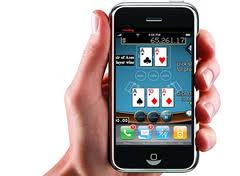The beginning of a sit n go tournament is mostly waiting. Moves you make here won’t matter as much as moves you make later on when the blinds, and therefore the table reserve is higher. Part 3 of this training course covers the early stages.
This is also a good time to take advantage of overly aggressive loose and complete amateur players. Amateur players will try to buy a lot of hands at this stage, over-betting early on often pays off.
The goal right now though is to stay in this Sit n Go no matter what. You may have to fold the best hand a time or two, when your tournament life is on the line and you’re not positive that you’ll make it out of the hand with chips.
At this point, you’re looking to take advantage of mistakes made by your opponents. That’s where your early stage Sit n Go money is going to be made. There’s no need to play fancy games, or try to outplay anyone, just sit back and get to know the players and playing styles at your table.
We’ll be learning to put opponents on a hand, and then we’ll make it to the money.
Sit N Go tournaments are fairly short so unless you’re playing an Ultra Turbo game, be patient, and your opponents will likely take care of themselves. If the opportunity arises for you to scoop a pot or two, by all means!
During these early stages, stick with super strong hands, or hands that are easily folded post flop. Pocket Aces, Pocket Kings, Pocket Queens, etc. are obviously great for starting hands. Smaller pairs are also ok to play with here. The moment your small pair doesn’t trip up on the flop, you throw it away, so you’re not risking your tournament life with these.
Of course use common sense when playing these smaller pairs, only play them from late position, when there are already a couple callers in front of you. This gives you money odds to call, and ensures you’re going to see a flop, instead of facing a raise after you’ve called and being forced to fold your hand before the flop.
Some of the most fun cards to play can be Ten-Jack suited, 89Suited, and the like. Insta-fold those. Those are trouble hands. They require too much work after the flop to pay off. For instance, if you find yourself in a hand with 78, and the flop brings a 5 and a 10, will you be able to fold? What if the flop is two suited cards? We’re not chasing odds here, we’re staying in the game.
If you find that you must play those cards, and your 78suited flops 56 of the same suit, BET! Just in case the odds don’t prove true, which they sometimes do not, give your opponent a reason to fold. Do not become a calling station waiting for the nuts to make a move. Besides, if you do get a call, and then happen to land the straight flush on the next card, you now have a better chance at enduing further action, not to mention you’ve gained some information as far as where your opponent stands in the hand, and how willing he will be to throw more chips into the pot.
It’s very rare when just calling is the correct move. Make big moves with your strong draws, make callable raises with the nuts, value bet those rivers, block bet when you miss. If you’ve bothered to play the hand, play the hell out of it.
If someone chases your big pair, and you get beat, take the beating gracefully. Be glad that there are still people in the game that will call off half, or even all of their chip stacks, with nothing but a draw, and keep them in mind throughout the game. This is someone you can likely keep in the hand when you hit those nuts later on. Not the best person to try to bluff off their blinds later on either.



